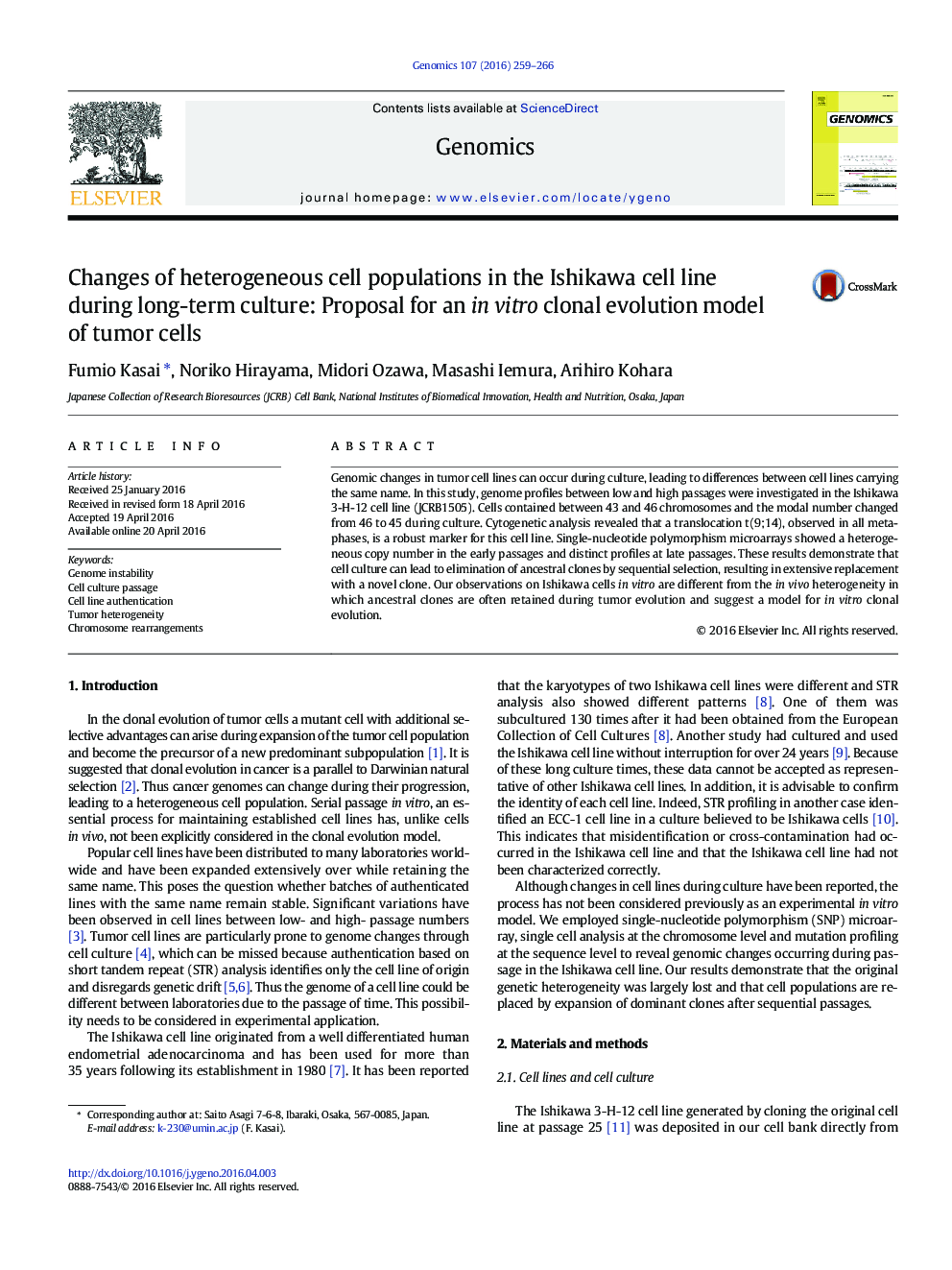| Article ID | Journal | Published Year | Pages | File Type |
|---|---|---|---|---|
| 5907730 | Genomics | 2016 | 8 Pages |
â¢An experimental model for clonal evolution through tumor cell culture is proposedâ¢The model reveals extensive replacement of cell populations during long-term culture.â¢Culture history of cell lines is fundamentally important for improving reproducibility in experimental applications.
Genomic changes in tumor cell lines can occur during culture, leading to differences between cell lines carrying the same name. In this study, genome profiles between low and high passages were investigated in the Ishikawa 3-H-12 cell line (JCRB1505). Cells contained between 43 and 46 chromosomes and the modal number changed from 46 to 45 during culture. Cytogenetic analysis revealed that a translocation t(9;14), observed in all metaphases, is a robust marker for this cell line. Single-nucleotide polymorphism microarrays showed a heterogeneous copy number in the early passages and distinct profiles at late passages. These results demonstrate that cell culture can lead to elimination of ancestral clones by sequential selection, resulting in extensive replacement with a novel clone. Our observations on Ishikawa cells in vitro are different from the in vivo heterogeneity in which ancestral clones are often retained during tumor evolution and suggest a model for in vitro clonal evolution.
